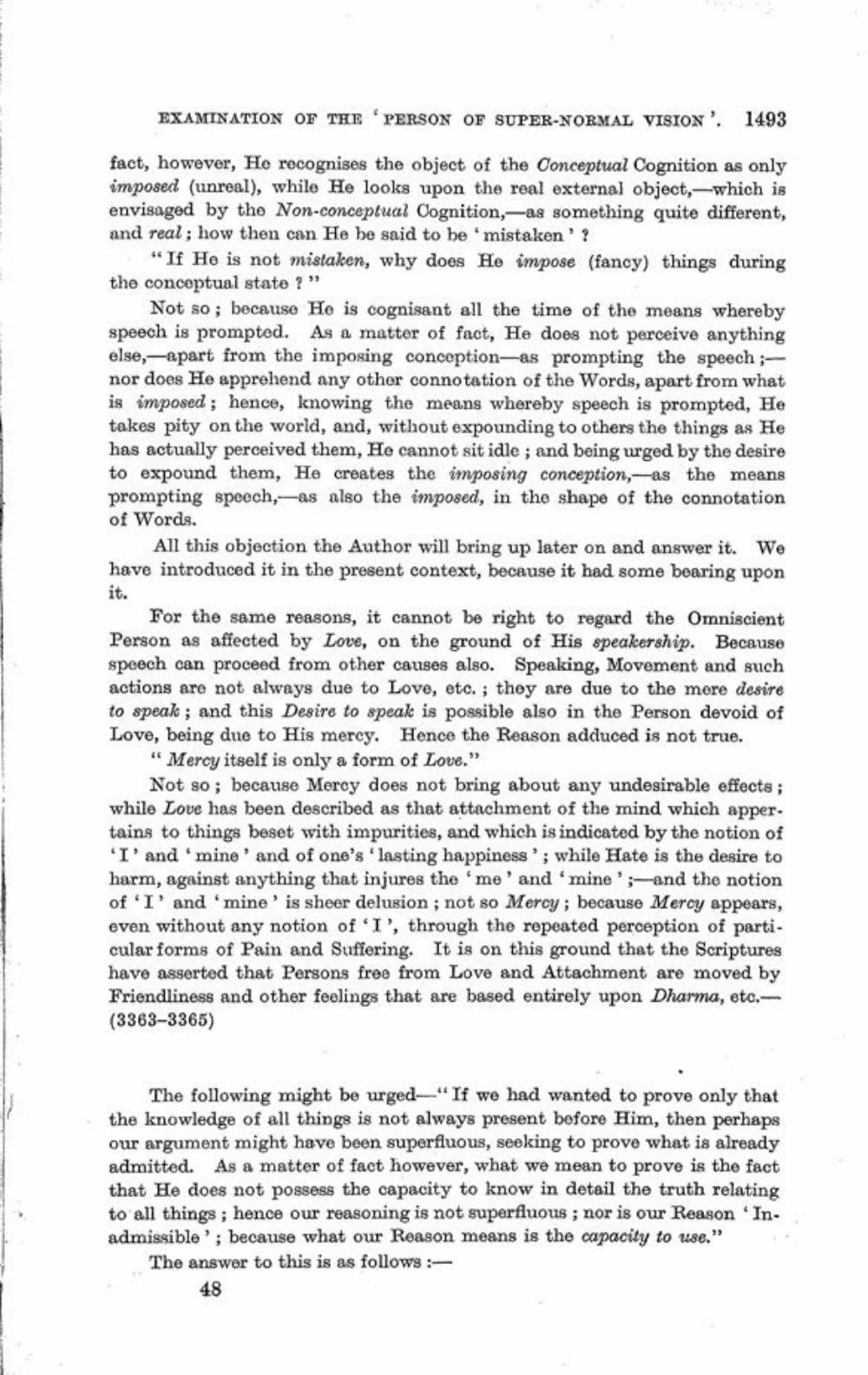________________
EXAMINATION OF THE PERSON OF SUPER-NORMAL VISION'. 1493
fact, however, Ho recognises the object of the Conceptual Cognition as only imposed (unreal), while He looks upon the real external object, which is envisaged by the Non-conceptual Cognition,-as something quite different, and real ; how then can He be said to be mistaken'?
"If He is not mistaken, why does He impose (fancy) things during the conceptual state ?”
Not so; because He is cognisant all the time of the means whereby speech is prompted. As a matter of fact, He does not perceive anything else,-apart from the imposing conception-as prompting the speech; nor does He apprehend any other connotation of the Words, apart from what is imposed; hence, knowing the means whereby speech is prompted, He takes pity on the world, and, without expounding to others the things as He has actually perceived them, He cannot sit idle ; and being urged by the desire to expound them, He creates the imposing conception, as the means prompting speech, -as also the imposed, in the shape of the connotation of Words.
All this objection the Author will bring up later on and answer it. We have introduced it in the present context, because it had some bearing upon it.
For the same reasons, it cannot be right to regard the Omniscient Person as affected by Love, on the ground of His speakership. Because speech can proceed from other causes also. Speaking, Movement and such actions are not always due to Love, etc.; they are due to the more desire to speak; and this Desire to speak is possible also in the Person devoid of Love, being due to His mercy. Hence the Reason adduced is not true.
"Mercy itself is only a form of Love."
Not so; because Mercy does not bring about any undesirable effects; while Love has been described as that attachment of the mind which appertains to things beset with impurities, and which is indicated by the notion of 'I' and 'mine' and of one's 'lasting happiness'; while Hate is the desire to harm, against anything that injures the 'me' and 'mine' ;-and the notion of 'I' and 'mine' is sheer delusion; not so Mercy ; because Mercy appears, even without any notion of 'T', through the repeated perception of particular forms of Pain and Suffering. It is on this ground that the Scriptures have asserted that Persons free from Love and Attachment are moved by Friendliness and other feelings that are based entirely upon Dharma, etc. (3363-3365)
The following might be urged—“If we had wanted to prove only that the knowledge of all things is not always present before Him, then perhaps our argument might have been superfluous, seeking to prove what is already admitted. As a matter of fact however, what we mean to prove is the fact that He does not possess the capacity to know in detail the truth relating to all things ; hence our reasoning is not superfluous ; nor is our Reason 'Inadmissible'; because what our Reason means is the capacity to use." The answer to this is as follows:
48




